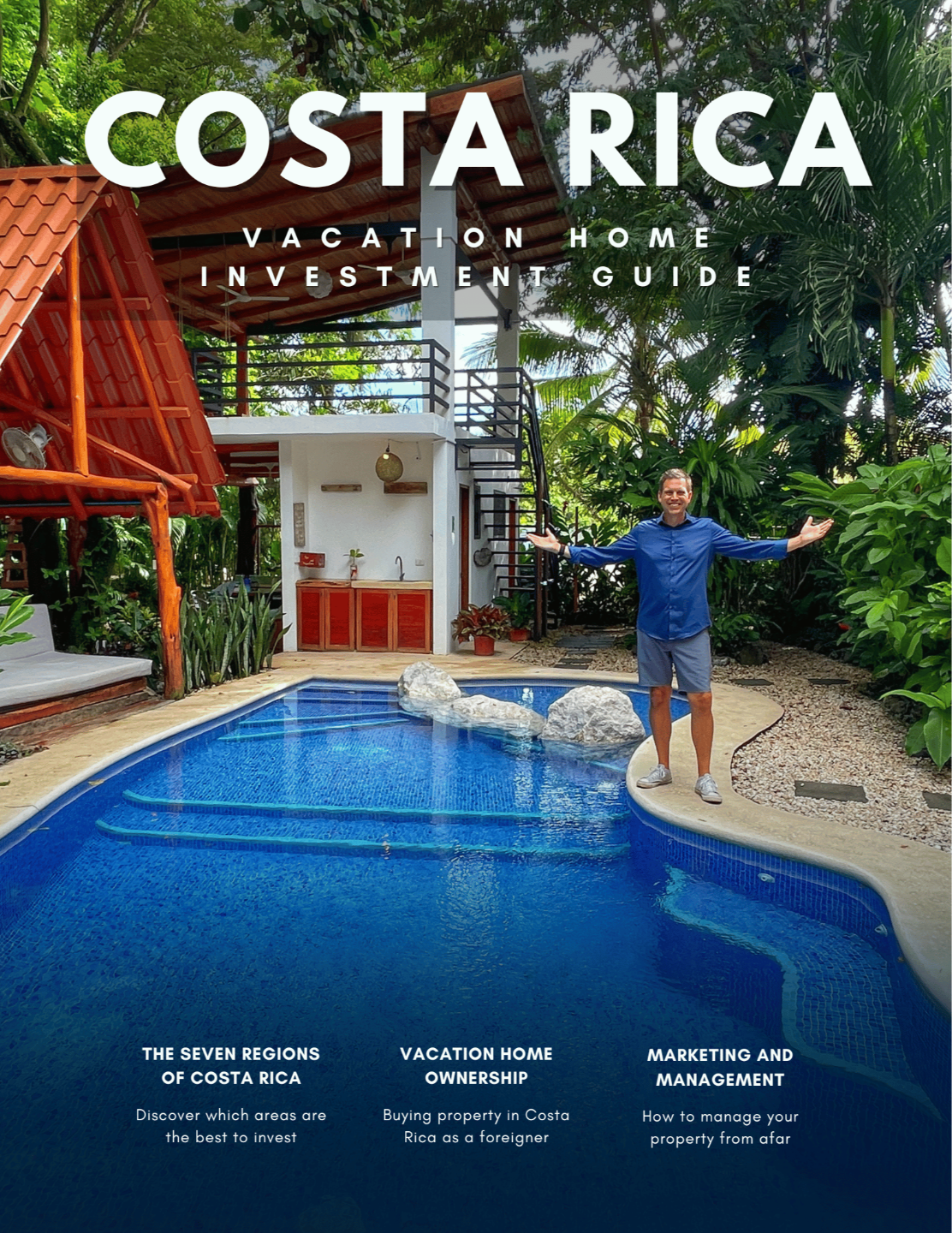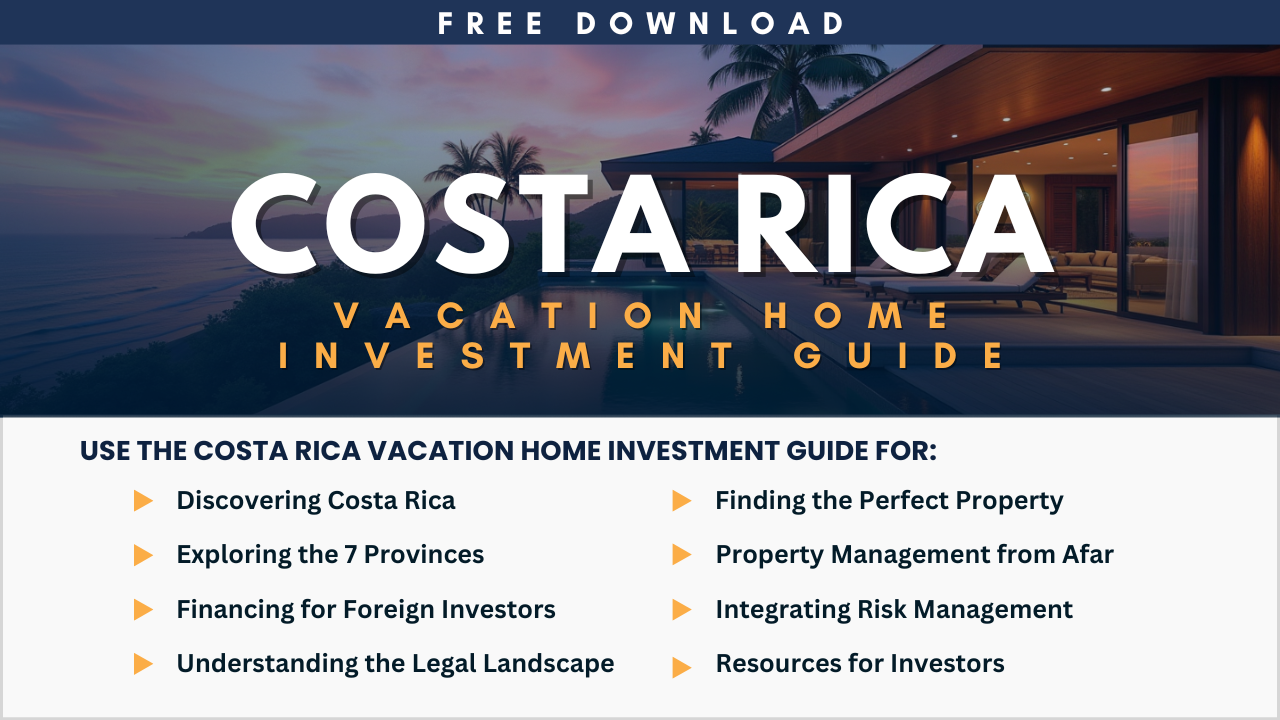
Hidden Costs of Owning a Vacation Home Abroad You Didn't Expect
Owning a vacation home abroad is a dream for many—whether for personal use, as a profitable rental, or a combination of both. From the allure of waking up in a foreign paradise to the potential for passive income through vacation rentals, the benefits are certainly tempting. However, many owners are taken by surprise when they realize just how much owning a property abroad can cost them
In addition to the initial purchase price, vacation rental property owners often encounter hidden costs that aren't always clear upfront. These ongoing and sometimes unforeseen expenses can affect your overall return on investment (ROI), making it essential to fully understand what’s involved. Whether it’s maintenance and repairs due to environmental factors, the complexities of managing property taxes in a foreign country, or navigating local insurance requirements, these costs can quickly add up.
In this article, we will break down the key hidden costs of owning a vacation home abroad. We’ll discuss maintenance, repairs, taxes, insurance, management fees, and other often-overlooked expenses that you need to consider before making an international investment. Understanding these costs ahead of time can help you make more informed decisions and prevent unexpected financial strain down the road.
Maintenance and Repairs
When you purchase a vacation home, it’s easy to overlook the ongoing maintenance costs that come with ownership. Properties in popular tourist destinations or remote areas tend to require more frequent upkeep due to environmental factors like humidity, saltwater corrosion, or harsh weather conditions.
- Environmental Impact: Vacation homes in tropical or coastal locations are particularly vulnerable to the elements. For example, saltwater corrosion, humidity, and extreme temperatures can accelerate wear and tear, causing your property to deteriorate faster than it would in less harsh environments. The maintenance required to keep these properties in good condition can be more expensive than inland homes.
- Real-life example: An owner in Playa del Carmen, Mexico, had to spend $6,000 on exterior repairs due to saltwater corrosion. Even though their property manager handled guest bookings and routine maintenance, the owner was responsible for the unexpected repair costs, which took a chunk out of their rental income.
- Regular Maintenance: Even if your property manager is handling general maintenance, such as cleaning and minor repairs, you will still need to regularly budget for significant updates. Roof repairs, plumbing issues, air conditioning servicing, and pest control are ongoing costs. Coastal properties, for example, may need more frequent attention due to the wear and tear caused by humidity and saltwater.
- Repairs: Unexpected repairs can arise at any time. Plumbing, electrical issues, roof damage, or pest control problems can be especially costly in foreign properties. For example, a beach property in Costa Rica may require $2,000-$5,000 annually for repairs due to the effects of tropical storms and humidity.
- Specialized Services: Depending on the location, you may need to hire specialized contractors or maintenance crews familiar with the local environment. This can increase costs, especially if these services aren’t readily available in your area.
Insurance
When it comes to vacation homes abroad, insurance is a must, but it can also be a hidden cost that many owners overlook. Insurance policies can vary significantly by country and region, and in some locations, they can be quite expensive, especially if the property is in a disaster-prone area.
- Property Insurance: This typically covers damage to the structure from natural disasters, accidents, or vandalism. In countries with higher risks of natural disasters (e.g., hurricanes in the Caribbean or earthquakes in parts of Asia), insurance premiums can be significantly higher.
- In regions like Hawaii, the average cost of homeowner’s insurance for a vacation rental property can range from $1,500 to $3,000 annually, depending on the property's location and risk factors.
- In Caribbean destinations or Pacific islands, owners may need specialized coverage against hurricanes, with premiums reaching $4,000 or more annually.
- Liability Insurance: If guests are injured on your property, liability insurance covers medical expenses and legal fees. It’s highly recommended for vacation rentals. Rates for liability coverage can range from $300 to $800 per year, depending on the size of the property and the number of guests it accommodates.
- Natural Disaster Insurance: In some regions, such as the Caribbean or Southeast Asia, where hurricanes and flooding are common, vacation rental owners are often required to purchase additional insurance that covers damage from natural disasters. Premiums for these policies can be higher, often adding $1,500 to $5,000 to annual costs depending on the location.
Tip: Shop around and get quotes from local insurance providers to ensure you're covered for any risks specific to the area. Make sure to also factor in liability coverage to protect yourself against potential lawsuits.
Property Taxes
Taxes are one of the biggest ongoing costs of owning a vacation home abroad, and they vary widely depending on the country and local jurisdiction. Some countries offer attractive tax incentives for vacation rentals, while others impose steep property taxes that can eat into your income.
- Property Taxes: Depending on the country, property taxes for vacation homes can range from 0.25% to 2% of the property’s assessed value annually. For example, in Mexico, property taxes typically range from 0.1% to 1.5% of the property’s value, which can add up quickly for higher-value homes.
- Tourism Taxes: Many countries impose taxes on income generated from vacation rentals. In France, vacation rental owners must pay local occupancy taxes (up to €2-€3 per night), while in Spain, owners of short-term rental properties must comply with regional tourism taxes and may also need to register the property with the government.
- Capital Gains Taxes: If you decide to sell your vacation home, you may face capital gains taxes on the profits from the sale. These taxes can range from 5% to 20% of the sale price, depending on the country.
Tip: Research the property tax and tourism tax rates in the area where you’re considering purchasing. Speak to a local tax advisor to understand your tax obligations and find ways to minimize your tax burden, such as utilizing tax exemptions or deductions available to vacation rental owners.
Foreign Transaction and Currency Exchange Fees
Owning a property abroad also means dealing with currency exchange, bank fees, and other transaction costs. When you’re receiving rental income in a foreign currency and transferring funds back to your home country, the process may come with hidden costs that can affect your bottom line.
- Currency Exchange: Fluctuating exchange rates can impact the amount of rental income you ultimately receive. If the value of the local currency drops relative to your home currency, you may receive less income when you convert funds.
- For example, if your vacation rental income is in Euros and you’re based in the U.S., a 5% decline in the Euro can mean significant losses when converted to dollars.
- Bank Fees: Many banks charge international transaction fees for converting currencies or transferring money to and from overseas accounts. These fees can range from 1% to 3% of the transfer amount, which may not seem like much but can add up over time, especially if you make frequent transfers.
- Wire Transfer Fees: If you need to transfer funds for property repairs or to pay local vendors, wire transfers can incur additional fees. International wire transfers may cost anywhere from $30 to $50 per transfer, depending on the amount and destination.
Tip: Look for international bank accounts that offer low or no fees for cross-border transfers. Services like Wise (formerly TransferWise) and PayPal can offer better exchange rates and lower fees compared to traditional banks.
Management and Service Fees
If you're using a property manager to handle the day-to-day operations, their fees are an obvious expense. However, many property managers charge extra for certain services, including advertising, guest communication, and maintenance. Here’s what you need to consider:
- Management Fees: Typically ranging from 20% to 30% of rental income, these fees cover the property manager’s basic services such as booking guests, guest communication, cleaning, and routine maintenance. However, many property managers charge extra for tasks such as arranging repairs, managing special requests, or marketing your property on multiple platforms.
- Cleaning and Concierge Services: Vacation rental properties often include cleaning and concierge services to provide a better guest experience. These services can add additional costs to your operation. Cleaning fees can range from $50 to $150 per visit, and concierge services, such as organizing tours or offering in-house chefs, can cost $200 to $500 per day.
Tip: When hiring a property manager, clarify all fees upfront to avoid surprises. Ensure the contract specifies exactly what services are included in the management fee and which services require additional charges.
Conclusion
Owning a vacation home abroad can be a rewarding investment, but it's important to recognize the hidden costs that can take a substantial toll on your ROI. From maintenance and repair expenses to insurance, taxes, and currency exchange fees, these often-overlooked costs can quickly add up.
Being prepared and budgeting for these expenses is essential to ensure that your vacation rental remains profitable. Researching local taxes, working with reliable property managers, and setting aside funds for unexpected repairs can help you minimize these hidden costs and maximize your returns. Remember, a hands-on approach—while seemingly more work—can help you stay ahead of these costs and ensure your international property remains a valuable asset.
👉 For more insights on managing costs and maximizing the profitability of vacation rental properties abroad, visit vacationpropertyexpertnetwork.com.







